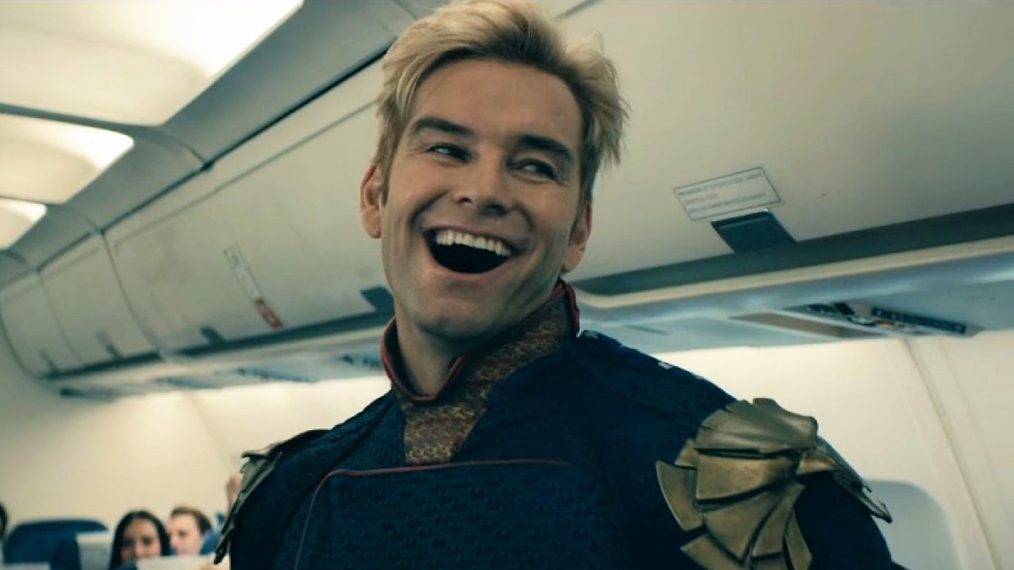The Boys Flips the Script on Superhero Ethics
Written by Ian Thomas Malone, Posted in Blog, Pop Culture, TV Reviews
There are more superhero-themed movies and television shows being produced than most of us have time to watch, even diehard fans of the genre. The idea of a show where the costumed characters are actually bad guys isn’t particularly unique in a landscape rife with antiheroes. Despite the glut, The Boys stands out for its first-class production values and a stellar cast.
Plenty of comic books take a fairly black and white approach to the concept of good guys and bad guys. The Boys largely ignores this strategy, instead basing its world-building on America’s own approach to good vs. evil. The show features a superhero group called The Seven, controlled by the powerful Vought International, a corporation best described as a defense contractor similar to Blackwater or Raytheon. The military-industrial complex is the true villain of The Boys.
Which isn’t to say that the good guys are particularly all that decent themselves. Billy Butcher (Karl Urban) is a man powered by a hatred of people with superpowers. He blames Homelander (Anthony Starr), the leader of The Seven, for the death of his wife, joining forces with Hugh Campbell (Jack Quaid), who similarly lost his girlfriend due to an accidental collision with The Seven’s A-Train (Jessie T. Usher). Complicating the dynamic is Hugh’s relationship with Seven newcomer Starlight (Erin Moriarty), perhaps the only member of the team concerned with actually helping people.
Part of what makes The Boys such compelling television is that it manages to be subversive without being reactionary. Anyone watching could see parallels between Homelander and Superman, or the resemblance between Vought International and the kind of superhero oversight that powered the narratives of Watchmen or Captain America: Civil War. The show doesn’t quite turn these concepts upside down so much as it challenges its audience to rethink the way we engage with this material at all.
Practically every mainstream superhero has a backstory and a private life, things they do when they’re not saving the world. These plotlines help humanize these characters as people, making them relatable to a general audience. The Boys seeks a similar approach, but it differs in choosing to highlight plenty of the unsavory aspects of human behavior that we generally don’t like to admit.
The real villain of The Boys is capitalism, a particularly formidable foe. The greed of Vought International transforms the concept of altruism into a circus. This dynamic is a challenging one to counter, as Butcher, Hugh, and the Boys find themselves similarly living under the frameworks of society. Who is good? Who is bad? Does that answer exist for any one of us to say?
The eight-episode first season gives the show plenty of time to give its large cast time to shine while establishing the broader world that The Boys inhabits. Some of the subplots hint at real-world themes, from the #MeToo movement to America’s obsession with productivity. There’s very little filler in a narrative that clearly wishes to extend beyond its initial run.
The Boys is one of the most impressive new shows of 2019. Amazon clearly spent a lot of money ensuring that the show’s budget reflected its ambitions. It can be at times a bit uncomfortable to watch, but that’s kind of the point. Traditionally, superheroes are supposed to offer hope and optimism, but The Boys reminds us that humanity is far more complex than that.











